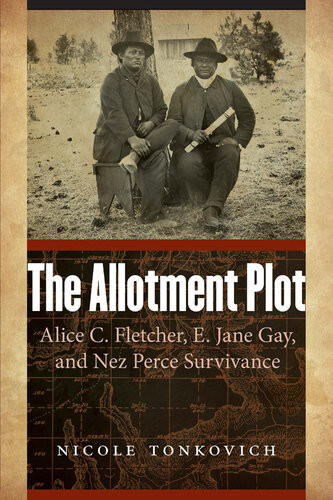

Most ebook files are in PDF format, so you can easily read them using various software such as Foxit Reader or directly on the Google Chrome browser.
Some ebook files are released by publishers in other formats such as .awz, .mobi, .epub, .fb2, etc. You may need to install specific software to read these formats on mobile/PC, such as Calibre.
Please read the tutorial at this link: https://ebookbell.com/faq
We offer FREE conversion to the popular formats you request; however, this may take some time. Therefore, right after payment, please email us, and we will try to provide the service as quickly as possible.
For some exceptional file formats or broken links (if any), please refrain from opening any disputes. Instead, email us first, and we will try to assist within a maximum of 6 hours.
EbookBell Team

4.3
88 reviewsThe Allotment Plot reexamines the history of allotment on the Nez Perce Reservation from 1889 to 1892 to account for and emphasize the Nez Perce side of the story. By including Nez Perce responses to allotment, Nicole Tonkovich argues that the assimilationist aims of allotment ultimately failed due in large part to the agency of the Nez Perce people themselves throughout the allotment process. The Nez Perce were actively involved in negotiating the terms under which allotment would proceed and were simultaneously engaged in ongoing efforts to protect their stories and other cultural properties from institutional appropriation by the allotment agent, Alice C. Fletcher, a respected anthropologist, and her photographer and assistant, E. Jane Gay. The Nez Perce engagement in this process laid a foundation for the long-term survival of the tribe and its culture.
Making use of previously unexamined archival sources, Fletcher's letters, Gay's photographs and journalistic accounts, oral tribal histories, and analyses of performances such as parades and verbal negotiations, Tonkovich assembles a masterful portrait of Nez Perce efforts to control their own future and provides a vital counternarrative of the allotment period, which is often portrayed as disastrous to Native polities.